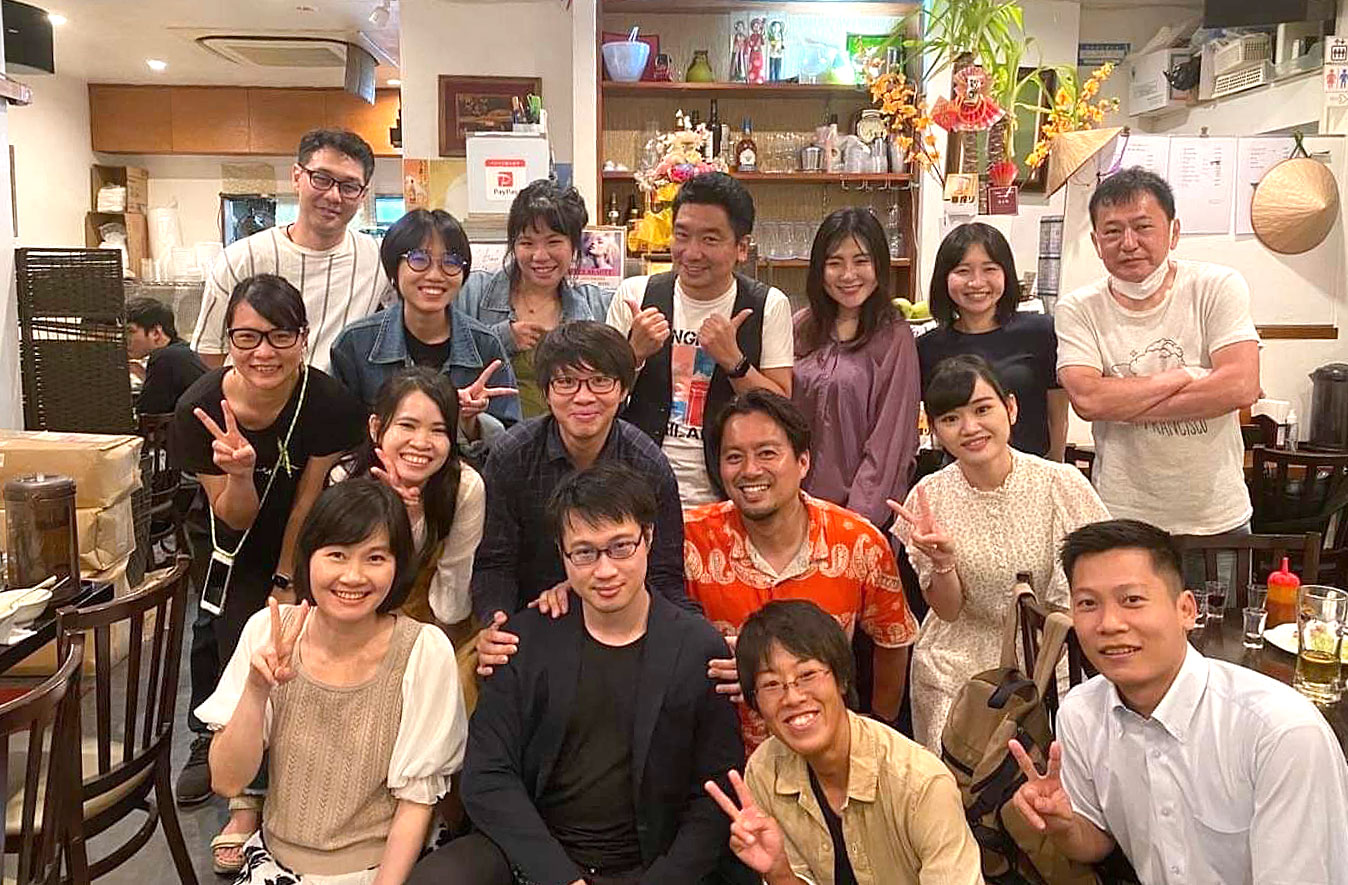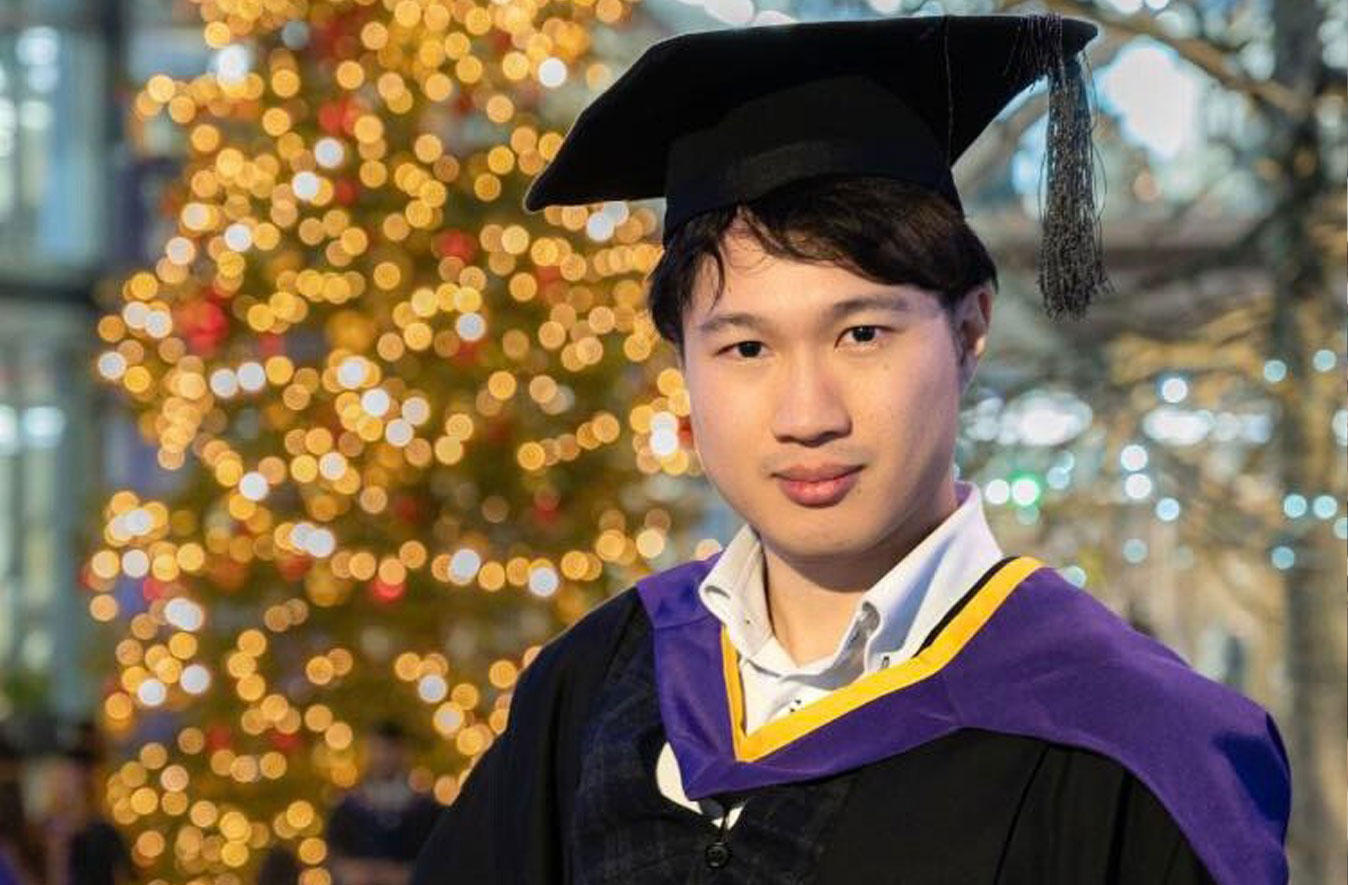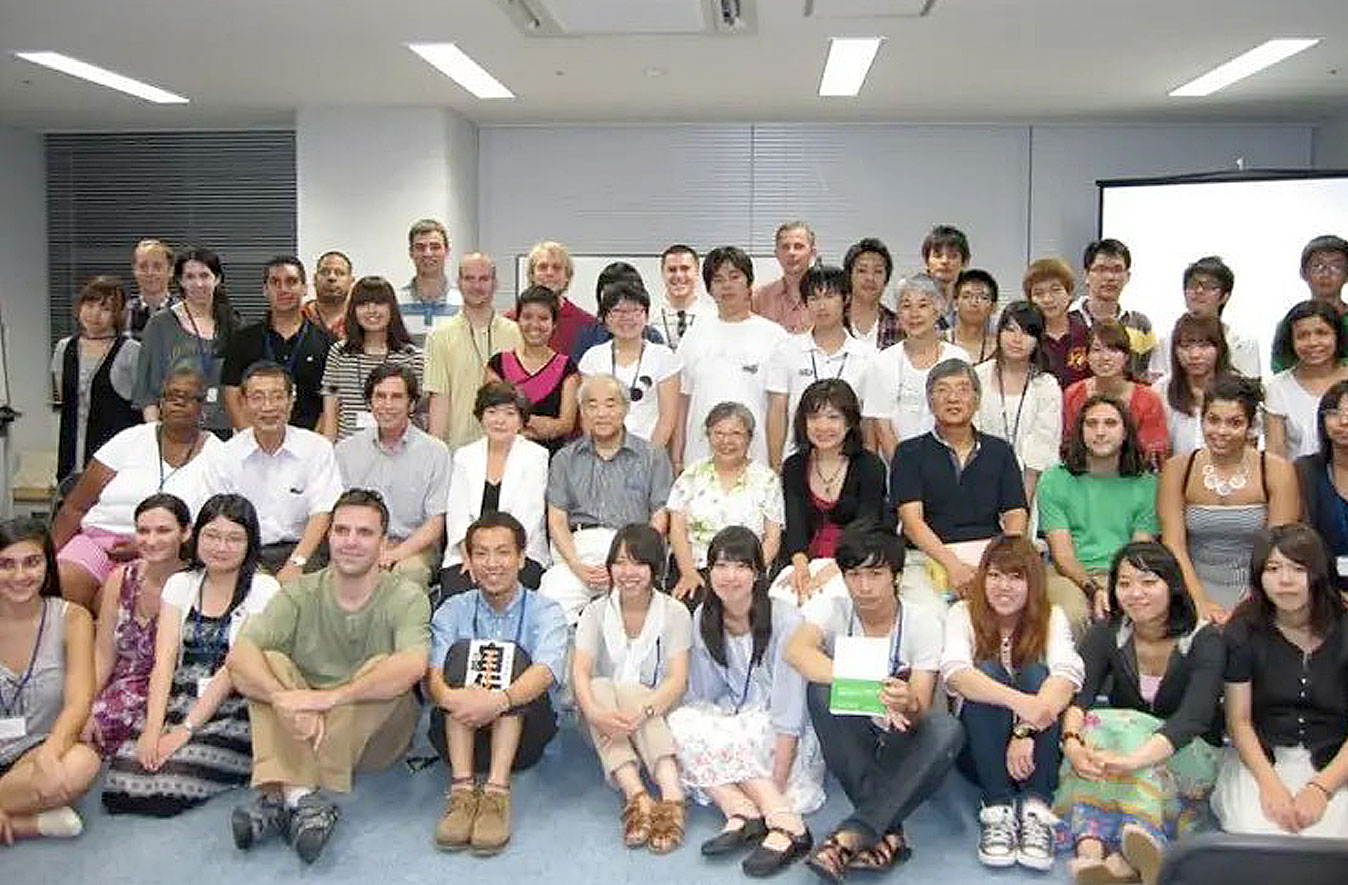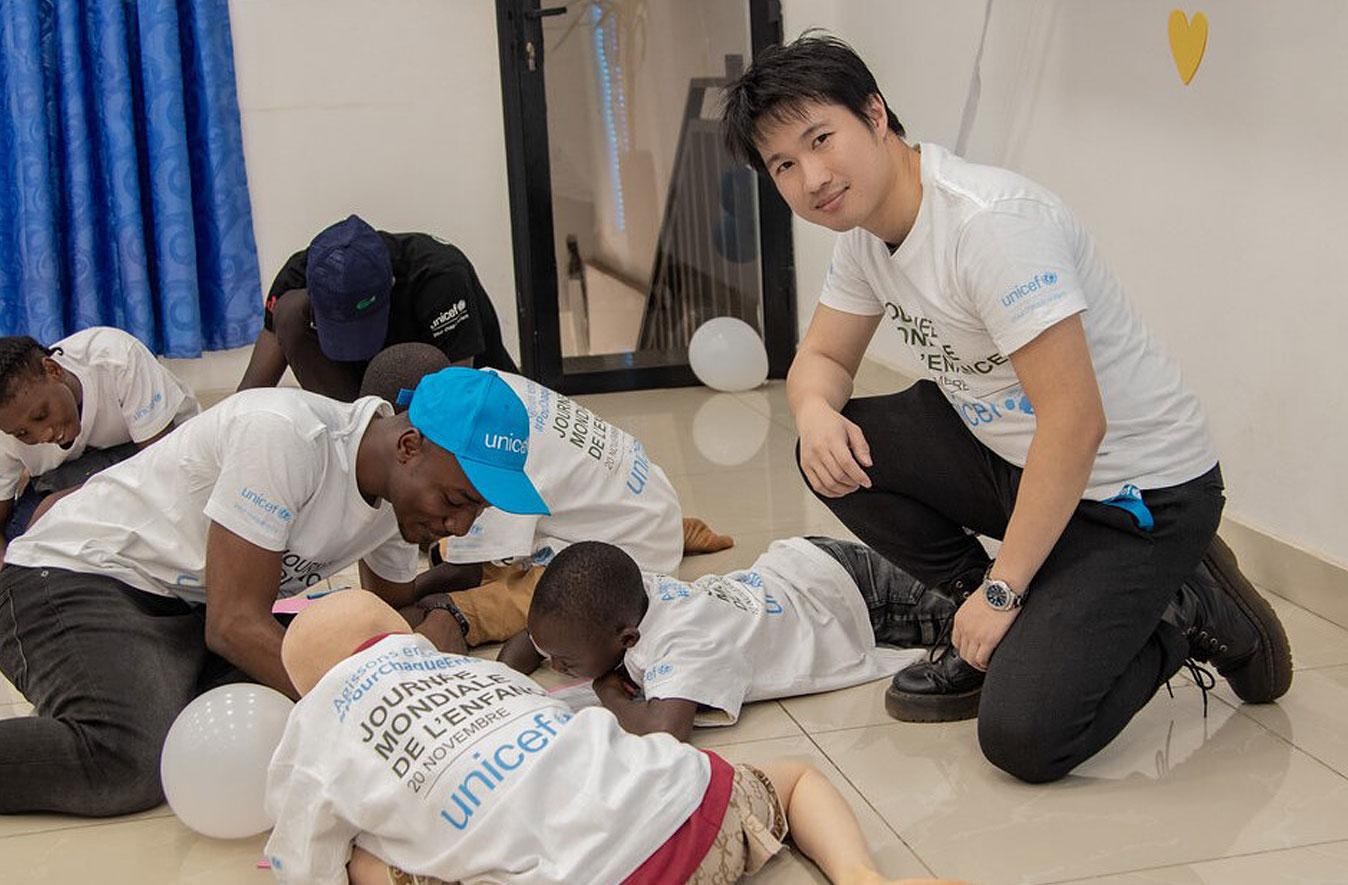
I encourage students to take advantage of various opportunities during their university years, meet diverse people, and broaden their perspectives. I look forward to meeting you someday at an international conference or on the frontlines of international cooperation.
Shin'ichi Bamba
UNICEF Guinea Office (International Relations Major Alumnus 2014)
Shin'ichi Bamba graduated from the College of International Relations in March 2015. He earned a master’s degree in Public Policy from Ritsumeikan University Graduate School in 2017 and gained experience working in a private company and an NGO. Later, he pursued a master’s degree in Human Resource and Organizations at the London School of Economics and Political Science (LSE) in the UK. Following his tenure at JICA, he has been serving as a Human Resource Officer at the UNICEF Guinea Office since October 2024.
What kind of work are you currently doing?
BambaI am currently working as a Human Resource Officer at the Guinea office of UNICEF, an organization dedicated to globally promoting the realization of children's rights. My responsibilities are implementing HR services that enhance the capacity of their clients to deliver on their business goals and objectives. I anticipate HR-related needs and develop subsequent plans and solutions that align HR management with business objectives.
Most recently, I prepared the 2024 Guinea country office learning and development report. The learning and development Plan for this year outlines the drive of Guinea Country Office to further invest in staff development, sustaining previous efforts of the Local learning and training committee in line with Western and Central Africa Regional Office's guidelines and priorities. Therefore, this plan emphasizes the integrated approach to staff development underpinned by excellence in performance management and career development, while ensuring key linkages to performance assessment, learning needs and career development goals.
Could you tell us about your career path from graduating with a degree in International Relations to your current role?
BambaDuring my undergraduate years, I studied under Professor Ryoji Nakagawa. With a clear goal of working for an international organization, I realized the necessity of earning a master’s degree. Believing that all sectors within international cooperation involve the public sector, I pursued a master’s degree in Public Policy at Ritsumeikan University Graduate School after graduation.
After completing my master’s degree, I decided to first gain experience in the private sector. I joined a trading company specializing in Africa and the Middle East, where I engaged in business with various African countries. My work contributed to creating employment opportunities in Africa.

BambaSubsequently, I transitioned to an NGO, seeking to work closer to beneficiaries. In this role, I was involved in human resource development projects in Vietnam and employment support for foreign residents in Japan. By this point, I had already obtained a master’s degree and met the eligibility requirements to apply to international organizations. However, my experiences in the NGO sector, combined with advice from a colleague working in HR at an international organization, inspired me to specialize in HR. I also wanted to organize the challenges I had observed in the field. This led me to pursue a master’s degree in Human Resource and Organizations at the London School of Economics and Political Science (LSE), where I gained systematic knowledge of HR and learned methods to apply data analysis to HR challenges.
After completing my studies at LSE, I had the opportunity to work with the JICA Vietnam Office, where I coordinated human resource development projects in Vietnam from the perspective of a public institution. Following the completion of my tenure at JICA, I began my current role as a Human Resource Officer at the UNICEF Guinea Office in October 2024.

How did your experiences in the College of International Relations help in your current work?
BambaThere are many ways in which my studies at the College of International Relations have been beneficial to my current work, but one stands out in particular: the ability to communicate my opinions in a foreign language to people from different cultural and linguistic backgrounds.
In my first year, I participated in the "International Peace Exchange Seminar," where I spent a week conducting fieldwork and discussing various peace-related topics with students from American University as well as Chinese and Korean students studying at Ritsumeikan Asia Pacific University. Through this experience, I discovered that people’s perspectives on fundamental issues varied greatly depending on their country of origin and upbringing.
Although I was able to organize my thoughts internally at the time, I found it challenging to express them effectively in English. This experience was a turning point for me. It motivated me to consider, in all subsequent activities, who would be participating in discussions, what kind of messages I wanted to convey, and how to communicate them in a way that, even if not entirely persuasive, could still be understood and appreciated by others.

BambaIn my second year, I participated in the Global Simulation Gaming (GSG) program, where students were divided into groups representing international organizations, nations, NGOs, and other stakeholders to conduct mock international negotiations aimed at solving global issues. This experience was highly valuable because, in the real-world context of international cooperation, one must coordinate with a wide range of stakeholders. Having such an opportunity as a student to practice these skills was a great advantage.
After graduating, I came to realize that the College of International Relations has a remarkably strong network of professionals involved in international cooperation. Many professors have work experience in international organizations, the Ministry of Foreign Affairs, JICA, or NGOs. I recall that the faculty frequently invited these professionals to seminars and events as guest speakers. The faculty now offers a unique initiative that includes visits to various international organizations in Thailand, which was not available during my time.
The alumni network also includes graduates engaged in business overseas. While I was working at the JICA Vietnam Office, I had the opportunity to meet students participating in the Global Fieldwork Project (GFP), a short-term study abroad program open to all faculties. During their visit to Vietnam, I joined many alumni who were running businesses in the country to speak with the students and share insights about our experiences and careers.
Could you share your future career aspirations?
BambaI am interested not only in human resource development within organizations, such as training and other HR-related activities, but also in field-level human resource development, such as vocational training for local populations. In my career prior to joining UNICEF, I was engaged in both areas. I intend to continue working in international organizations and aim to contribute to the missions of organizations I am fortunate to join by focusing on HR and talent development activities.
Additionally, my current supervisor at UNICEF has recommended specific data tools that are increasingly in demand in the HR field. I plan to acquire these skills and apply them in my work.

What message would you like to share with students of International Relations aiming to work in international organizations?
BambaEven if you’re interested in working for international organizations or engaging in international cooperation, it can be difficult to set specific goals, such as deciding which organization to work for, what kind of role to take on, or which issues you want to solve. I encourage students to take advantage of various opportunities during their university years, meet diverse people, and broaden their perspectives.
During my time studying in the College of International Relations, I actively participated in various events, particularly those related to international cooperation and cultural exchange. I found it fascinating to listen to the experiences and insights shared by many individuals. This continued even after I started working, and through these events, I met people who provided invaluable advice at key points in my career, especially when I decided to pursue a postgraduate degree in the UK and later when transitioning to a role in an international organization.
For example, while working in Vietnam, I happened to read an article featuring a senior from my faculty who was working for an international organization in Thailand. I reached out to her, arranged a meeting in Bangkok, and received invaluable guidance.
If you’re unsure about what you want to do next, start by taking action. Many people thriving in the field of international cooperation likely went through a period of uncertainty, just as you might be experiencing now—I certainly did. By actively listening to their stories or participating in events that spark even the slightest interest, you may gain valuable insights for your career or even find a role model for your life.
The College of International Relations offers numerous opportunities thanks to the support of professors, staff, and alumni. I encourage you to make the most of these resources. Don’t forget to express your gratitude. Take the time to occasionally update those who have supported you about your progress. If I can be of assistance, please don’t hesitate to reach out. I look forward to meeting you someday at an international conference or on the frontlines of international cooperation.
LinkedIn: Shin'ichi Bamba
*When submitting your connection request, I would appreciate it if you could also include a brief self-introduction and any questions you may have.
November 2024
MORE INTERVIEWS
-
Bridging Japan and the US through International Relations and Language – My Four Years in the JDP and My Global Future
INADA Mimi
Fourth-year Joint Degree Program (RU-home)2025.2.25
studentlife|academics|studyabroad|jdp|
-
While technical knowledge and job-required skills can be learnt after being on the job, some skills, such as communication, presentation, data analysis, and visualization, are the skills I was able to learn from my time at Ritsumeikan.
Pranjal Modi
RIMOWA (Global Studies Major Alumnus 2022)2025.2.4
alumni|
-
Zemi Research Convention 2024“The Integration of Human Rights into International Environmental Law and its Implications”
Ochi Seminar
(team name: Environmental Justice Analysts)2025.1.6
academics|openseminar|
-
Zemi Research Convention 2024“Are Israel's actions in Palestine considered self-defence”
Ochi Seminar
(team name: The Prosecutors)2024.12.25
academics|openseminar|
-
This supportive community empowers you to step out of your comfort zone and take on numerous challenges throughout your university life.
SUZUKI Tomoya
SAP (International Relations Major Alumnus 2018)2024.12.11
alumni|
-
Surrounded by diversified nationalities of colleagues and external business relationships, this was essentially similar to what I experienced while studying in the College of International Relations.
Joyce Lo
Mindshare (Global Studies Major Alumnus 2017)2024.12.10
alumni|